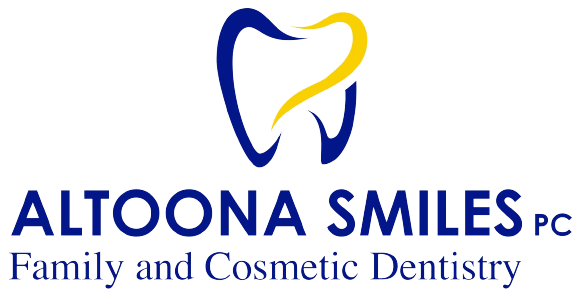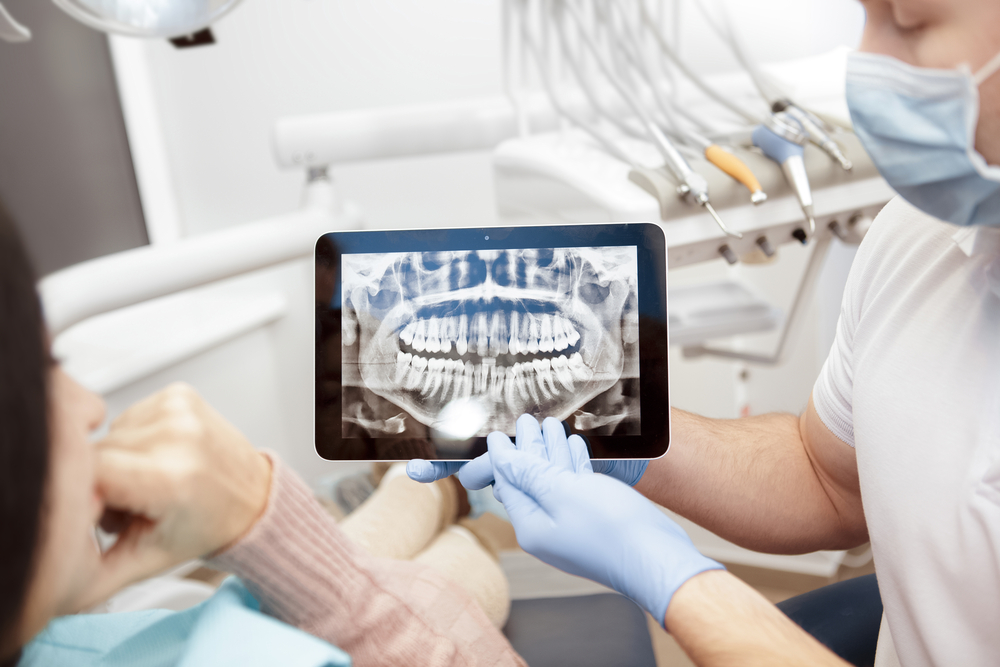For many, the emergence of wisdom teeth is a rite of passage into adulthood, often accompanied by tales of swollen cheeks and soft food diets. But is the removal of these third molars always necessary? The decision to extract wisdom teeth has been a topic of dental debate for years. While some view it as a preventive measure against potential dental issues, others believe it’s only essential under specific circumstances. In this blog post, we’ll delve into the reasons behind wisdom teeth removal, the pros and cons, and help you determine whether it’s the right choice for you.
Understanding Wisdom Teeth

Wisdom teeth, also known as third molars, are the last set of molars located at the back of the mouth. They typically emerge in late adolescence or early adulthood, usually between the ages of 17 and 25. The term “wisdom” teeth is derived from the age at which they appear, a time when a person is supposedly wiser than when their other teeth have come in during childhood.
Humans have three sets of molars on each side of the upper and lower jaws:
- First molars, also known as 6-year molars because they typically come in around the age of 6.
- Second molars, or 12-year molars, which usually emerge around the age of 12.
- Third molars, the wisdom teeth, which come in during late adolescence or early adulthood.
Evolutionarily, wisdom teeth are believed to have been necessary for our ancestors who had a much tougher diet, consisting of raw plant material and uncooked meat, which required more chewing and grinding. As human diets and lifestyles evolved, and with the advent of cooking and food processing, the jaw size reduced, often leaving insufficient space for wisdom teeth to emerge properly. This lack of space can lead to various dental issues, such as impaction, misalignment, or overcrowding, which is why many people opt to have their wisdom teeth removed.
Why Remove Wisdom Teeth
Dentists often recommend the removal of wisdom teeth for several reasons, primarily related to potential complications and the overall health of the mouth. Here are some of the main reasons why dentists might advise the extraction of wisdom teeth:
Impaction:
One of the most common issues with wisdom teeth is impaction, where the teeth do not emerge fully from the gums. This can occur because there isn’t enough space in the mouth for the teeth to grow properly. Impacted wisdom teeth can be painful and can lead to infections.
Overcrowding:
The emergence of wisdom teeth can push other teeth out of their proper alignment. This can lead to overcrowding, misalignment, or bite issues, which can affect the overall appearance and functionality of the teeth.

Infection or Gum Disease:
Partially erupted wisdom teeth can create pockets in the gums where bacteria can accumulate, leading to infections, gum disease, or cyst formation around the tooth.
Tooth Decay:
Wisdom teeth, especially if they’re impacted or misaligned, can be harder to clean due to their location at the back of the mouth. This can make them more susceptible to tooth decay and cavities.
Preventive Measure:
Even if a patient isn’t currently experiencing problems with their wisdom teeth, a dentist might recommend removal as a preventive measure, especially if they foresee potential complications in the future.
Orthodontic Reasons:
For patients undergoing orthodontic treatment or those who have had orthodontic work in the past, the removal of wisdom teeth might be recommended to prevent any potential undoing of the orthodontic work.
Pain and Discomfort:
Some people experience significant pain, swelling, or discomfort when their wisdom teeth are coming in. In such cases, removal can provide relief.
Cysts or Tumors:
In rare cases, cysts or tumors can form around the impacted wisdom teeth, which can lead to damage to the jawbone or other teeth.
It’s worth noting that not everyone needs to have their wisdom teeth removed. The decision is typically based on individual circumstances, the dentist’s assessment, and potential risks associated with leaving the teeth in place. Regular dental check-ups and X-rays can help monitor the growth and position of wisdom teeth, allowing for timely intervention if necessary.
Why Keep Wisdom Teeth
While many people have their wisdom teeth removed due to potential complications, there are also valid reasons to consider keeping them, provided they are healthy and properly positioned. Here are some reasons why one might choose to retain their wisdom teeth:
- No Present Issues: If the wisdom teeth have fully erupted, are properly aligned, and are not causing any pain or dental problems, there might be no immediate need for extraction.
- Functional Use: For some individuals, wisdom teeth can be fully functional, aiding in chewing and biting just like any other molar.
- Cost and Procedure Concerns: Dental procedures, including wisdom teeth extraction, can be costly, especially without dental insurance. Some people might choose to delay or avoid the procedure due to financial constraints or concerns about the surgical process.
- Recovery Time: The recovery period after wisdom teeth extraction can involve swelling, pain, and dietary restrictions. Some individuals might prefer to avoid this downtime, especially if their wisdom teeth aren’t currently causing problems.
- Natural Dental Evolution: Some believe in allowing natural dental processes to occur without intervention unless absolutely necessary. If the wisdom teeth aren’t causing harm, these individuals might prefer to let them stay.
- Potential Risks of Surgery: Like any surgical procedure, wisdom teeth extraction comes with its own set of risks, such as infection, nerve damage, or complications from anesthesia. Some might opt to avoid these potential risks by keeping their wisdom teeth.
- Cultural or Personal Beliefs: Some cultures or individuals might have beliefs or traditions related to body integrity and might be against removing body parts, including teeth, unless it’s a life-saving measure.
It’s essential to have regular dental check-ups to monitor the health and position of wisdom teeth. If someone chooses to retain their wisdom teeth, they should be diligent about oral hygiene and be aware of any changes or issues that might arise. Proper cleaning, regular flossing, and routine dental visits can help ensure that wisdom teeth remain healthy and free from decay or gum disease.
Signs a Wisdom Tooth Extraction May Be Necessary
If you’re experiencing issues with your wisdom teeth, there are several signs and symptoms that might indicate the need for an extraction. Here are some of the most common signs:

- Pain and Discomfort: One of the most telling signs is persistent pain or discomfort in the back of your mouth, especially around the area where the wisdom teeth are located.
- Swelling and Redness: Swelling, redness, or tenderness in the gums around the emerging or impacted wisdom tooth can be indicative of an infection or inflammation.
- Jaw Pain: Pain or stiffness in the jaw, especially near the angle of the jaw, can be associated with impacted or problematic wisdom teeth.
- Bad Taste or Odor: An unpleasant taste in the mouth or persistent bad breath can be signs of an infection or decay related to wisdom teeth.
- Difficulty Opening the Mouth: If you find it challenging to open your mouth fully or experience pain when doing so, it might be due to an impacted wisdom tooth or associated inflammation.
- Tooth Crowding: If you notice that your teeth are shifting or becoming misaligned, it could be due to the pressure exerted by emerging wisdom teeth.
- Gum Infections: Signs of gum infections, such as pus, frequent gum abscesses, or bleeding gums around the wisdom tooth area, can indicate issues.
- Cysts or Tumors: In rare cases, cysts or tumors can form around the base of an impacted wisdom tooth. This can be detected through dental X-rays and is a definite indication for extraction.
- Tooth Decay: If the wisdom tooth or the tooth next to it starts decaying, especially if it’s difficult to clean due to its position, extraction might be necessary.
- Repeated Soft Tissue Infections: If the soft tissue behind the last molar frequently gets infected, it might be due to a partially erupted wisdom tooth.
If you experience any of these symptoms, it’s essential to consult with a dentist or oral surgeon. They can evaluate the situation, possibly take X-rays, and provide guidance on whether extraction is the best course of action. Even in the absence of symptoms, regular dental check-ups are crucial as they can help detect and address potential issues with wisdom teeth before they become problematic.
In Conclusion
In the journey to understand the enigma of wisdom teeth, one thing is clear: there’s no one-size-fits-all answer. The decision to extract these teeth hinges on individual circumstances, dental health, and potential complications. While many undergo extraction to prevent or address issues like impaction, overcrowding, or infections, others retain their wisdom teeth without any problems throughout their lives. Regular dental check-ups and consultations are paramount, allowing professionals to monitor and provide tailored advice. If you’re pondering the fate of your wisdom teeth, remember that it’s a decision best made with informed knowledge and expert guidance. Your mouth’s well-being deserves nothing less.







